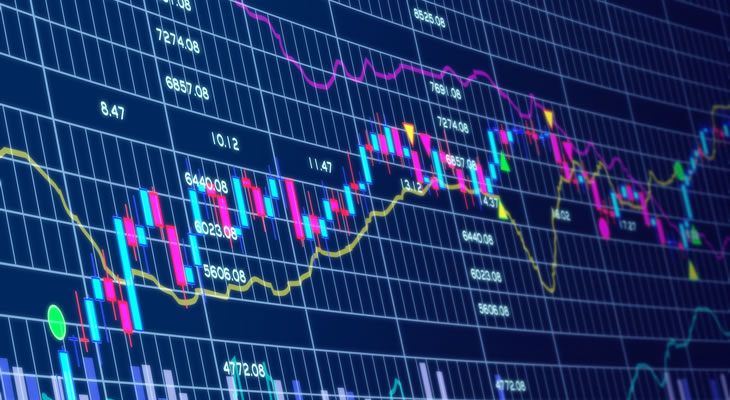Euro to US Dollar Exchange Rate Gains on US-China Jitters despite German Data
Despite this week’s Eurozone data doing little to offset concerns about the Eurozone economic outlook and in some cases worsening them, the Euro to US Dollar (EUR/USD) exchange rate has been trending near its best levels in around half a month.
After rebounding from a 2019 low of 1.1030 last week, EUR/USD has been rebounding. EUR/USD fell last week overall and closed at the level of 1.1109, but has seen a stronger rebound this week so far.
While EUR/USD has been unable to Tuesday’s half-month-high of 1.1245, the pair has sustained most of this week’s gains. EUR/USD is trending near the level of 1.1217 at the time of writing today, which is higher than any level in around half a month.
Investors have been buying the Euro (EUR) versus a weaker US Dollar (USD) due to the negative correlation the currencies share, as US-China trade concerns keep pressure on the US Dollar outlook.
Euro (EUR) Exchange Rates Benefit from Rival Weakness despite Recession Fears
The Euro has been able to sustain a solid recovery against the US Dollar this week so far, despite Eurozone news giving investors less reason to be optimistic about the currency bloc’s economic outlook.
The European Central Bank (ECB) is already widely expected to ease monetary policy in September, and this week’s Eurozone data has only had a more bearish effect on the Eurozone outlook.
Markit’s Eurozone services and composite PMI stats published on Monday fell short of expectations in many key prints, and yesterday’s German industrial production report from June showed a surprisingly deep contraction of -1.5%.
Germany’s production data was so poor that analysts said it had ‘no silver lining’ and worsened fears that Germany could fall into recession sometime this year.
Amid a lack of domestic support, the Euro has instead been benefitting from US Dollar weakness.
Due to the negative correlation the currencies share, fears of US-China trade tensions and a potential currency war hitting the US economy have left the Euro stronger in comparison.
US Dollar (USD) Exchange Rates Failing to Capitalise on Safe Haven Demand
One of the primary causes of market movement this week has been flaring US-China trade war and currency war fears, as trade relations between the nations sour and trade action against one another is ramped up.
The news has led to a surge in demand for safe haven currencies, especially the Japanese Yen (JPY) and Swiss Franc (CHF).
However, while typically seen as a safe haven currency, the US Dollar has been unable to capitalise on the movement due to persisting fears that the US economy could be directly hit by US-China tensions.
On top of this, the trade tensions are deepening speculation that the Federal Reserve will become more dovish in the coming months.
As a result, the US Dollar has tumbled from its recent highs, and the Euro has benefitted from much of the safe haven demand instead.
Euro to US Dollar (EUR/USD) Exchange Rate Awaits Data and Trade Developments
While the Euro to US Dollar (EUR/USD) exchange rate has been gaining on US-China trade tensions and US Dollar weakness, the pair’s potential for further gains is highly limited due to worsening Eurozone economic outlook.
While investors expect more dovishness from the Federal Reserve than the European Central Bank (ECB) in the coming months, worsening fears of a possible technical recession in Germany are likely to keep the Euro unappealing.
Some Eurozone data due tomorrow could put even more pressure on the Euro if it disappoints, which could cause the Euro to shed some of its recent gains as downside pressure builds.
On the other hand, stronger Eurozone data could offer the Euro outlook a little relief. German trade balance and French industrial production will be published.
As for the US Dollar, this afternoon’s US wholesale inventories data will be one of this week’s most notable US ecostats and could help the US Dollar to avoid further losses if it impresses.
Of course, having caused much of this week’s Euro to US Dollar (EUR/USD) exchange rate strength, further US-China trade developments could also prove influential.


Comments are closed.